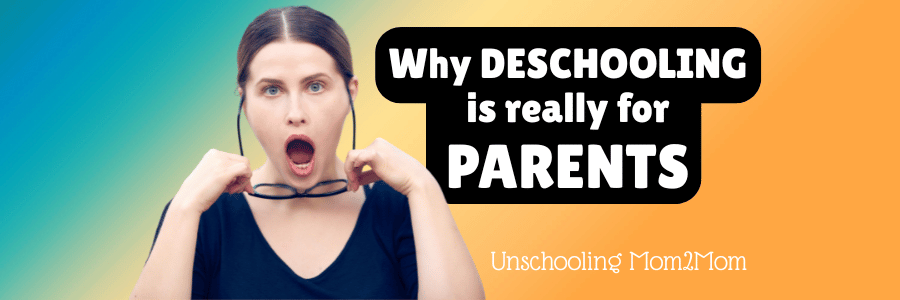Redo This Reality Check
Why is it that some parents feel they need to be so harsh?
I guess they’re afraid their kids (or someone else’s) are going to catch a break or take advantage of them or something. But these parents are really glass-is-half-empty people, aren’t they?
Is anyone going to be surprised when the parents who “like” and “share” this meme on social media have kids who are sullen and resentful? Children really do learn so much from the modeling that happens with the adults in their lives.
Maybe that’s something to consider, the next time someone wants to have a little parenting temper tantrum on the internet. (Did someone forget to tell this person that all these capital letters indicate a heck of lot of yelling?)
So let’s redo these, shall we?
- You WILL NOT be rewarded for bad behavior.
People make mistakes. In fact, that’s how we learn. It gives us more data so the next time a similar problem rolls around, we can make some adjustments and choose differently. As their parent, we don’t love them less because they made a mistake!
This focus on rewards needs to be revisited though. Have you read Alfie Kohn’s Punished By Rewards ? That would be my first tip for the parent who wrote the original piece. (The quick take-away from the book is that too much focus on extrinsic rewards tends to diminish a person’s natural motivation. One look at how schools operate, and you can see the effects of this.)
REDO: Mistakes happen. Learn what you can from them.
- Being told “No” is a part of life. GET OVER IT.
The first part is true. “No” is something we all hear. It’s the “GET OVER IT” part that is so unkind. It’s so dismissive! Can’t the parent show a little compassion to a child that is being told “no?” It’s hard to hear “no” when you want to do something. As the adult in charge, you're not really supposed to compound the problem! Learning some healthy ways to cope or to reassess the situation would be a much better parenting approach than simply shouting “GET OVER IT!” This piles on more negativity on an already difficult situation. Why do that?
REDO: I will help you explore your options when you’re frustrated with the situation.
- You are free to make your choice, you ARE NOT free of the consequences.
Learning about consequences is part of growing up. We all have an ever-increasing collection of experiences, and when we’re younger, we may not realize the full extent of the consequences of some of our actions. As parents, we can help our children by sharing information - but they’re a lot less likely to listen if we’re negative and yelling at them all of the time like this. And, realistically, children with moms and dads who continue to parent in very mainstream ways (through control and fear), don’t have that many choices in their lives overall. So with the few choices that they do have, hanging this big fear of consequences over their head serves what purpose? A handy reminder to always play it safe? When we try to keep kids in line and playing small by fearing making a mistake, we do them such a disservice. Read this from Peter Gray or google “risk aversion” and “children.”
REDO: Life is full of choices. Think it through and get back to me if you’re having trouble.
- Life IS NOT fair.
- Another big broad negative announcement... because why?
Sometimes this concept is exactly the catalyst needed for this next generation to solve some of the injustices in our world today. It’s not about always accepting the unfairness. Sometimes it’s about figuring out a new way of looking at the situation and coming up with better solutions.
REDO: When Life isn't fair, it's ok to be disappointed. Do you see some solutions that others don't see?
- You are not the boss.
(I read this and I can’t stop hearing the theme song of Malcolm in the MiddleMalcolm in the Middle !)
This isn’t actually true. A child is their own boss in several ways: First and foremost, they’re the boss of their own bodies. They’re the boss of how they show up in the world. Actually, they have a growing power as they get older (maybe that’s what this parent is so afraid of!) It’s far better, as parents, to help kids learn what to do as they become more empowered. Telling a child, “you’re not the boss,” says far more about the parent saying it… and their feelings of being seen as weak or powerless.
REDO: Let’s explore this concept together:
“With power comes great responsibility.”
- The world does not revolve around you.
Well, actually… when you study the growth and development of children, the preoperational stage of cognitive development lasts until about age 7. It’s characterized by egocentrism. It’s not because the child is doing something selfish - it’s how their brain and cognitive skills are developing! Read more about Piaget’s work here. It’s far better to help a child, regardless of their age, to see that their wishes and needs are valued - as are others in the family. Modeling this will help them learn to value others. When you constantly tell them that their ideas and preferences are not valued, they are far less likely to value others’ - they’re too busy trying to be heard themselves!
REDO: Let’s look at what you want to do, how it relates to everyone else’s wishes in our family, and what we can do about it.
- Respect is EARNED, it is NOT just given.
No. Respect is a basic human right. It has to do with common decency. This is a phrase that is tossed about often but really needs to be eliminated asap! All humans deserve respect… all life really. Don’t we want our children to be kind to everyone they meet - human or animal - regardless of their stature? Is this parent really saying that our default should be “ dis respect?” That would be a horrible starting place for social interactions. Imagine the downward spiral that would occur when you feel it is ok to disrespect people until they’ve shown you they deserve otherwise. ACK! Everyone is deserves respect, simply because they’re alive.
REDO: With so much emphasis on wealth and social status in this world, remind children that everyone deserves the same amount of respect - whether they’re the janitor or the CEO.
- The world owes you NOTHING. Work for it.
Why paint such a bleak outlook about the world for your child? The world is a beautiful place and it’s important to show your children that all of the wonders are available to us - we only have to notice!
The second part of this point confuses me - work for what? So the world will give you something? I think this is another poorly constructed attempt to encourage a child to be a hard worker. Sure! That’s a great idea! Learning about persistence and goals are important. But developing those characteristics has nothing to do with anyone owing you anything. It might be important to read up in scarcity/abundance mindsets .
REDO: Enjoy your life - work hard for what you want.
- Fits and tantrums will get you NOTHING. Stop wasting your time.
Fits and tantrums are simply displays of frustration - a way of communicating when you’re at the end of your rope. They do get you attention. And, they often demonstrate that the maturity level is still underdeveloped. But a child is much less likely to throw fits and tantrums if these haven't been modeled for them when the adults in their world are frustrated.
REDO: Everyone should examine the way they cope with frustrations - even the parents.
- You put yourself here. YOU need to fix YOU.
This statement makes me think this list may actually hang in a school detention area. Yes, I spent a significant number of afternoons there and this type of announcement was common. It has the distinct feel of a prison system though, doesn’t it? Sadly, there are a number of similarities between schools and prisons. Have you seen the meme on Instagram or Facebook ?
REDO: Life is full of choices. Be sure to surround yourself with people who are supportive.
- Shut your mouth, open your ears.
Sure, we should all strive to be better listeners. But some people actually process their thoughts by talking. The dismissiveness and disrespect of telling anyone “shut your mouth” can only have a negative impact. Either it insults the person so much that they begin to dismiss anything the adults around them say. Or it silences the child so much they fear speaking up. And then what if they need to speak up but they’ve been conditioned to stay quiet and compliant? Or they doubt themselves so much and fear incurring the wrath of the adults in charge? Because in the end, all any of us really want is to be heard.
REDO: Learn good communication techniques - when to speak, when to listen, and how to interact respectfully with everyone you come into contact with.
Need to Be Around Other Unschooling Parents?
We can really feel inundated by all the mainstream parents on social media. When we're trying to parent in a different (kinder, more relationship-based) approach, it can be jarring. It can also sometimes cause us to second-guess some of our ideas.
We've created a private membership group for parents who would like to be around other parents who are on this somewhat unconventional path. Parents at various points on their unschooling path share what what and what doesn't - all with coaching guidance from longtime unschooling mom, Sue Patterson.
You don't have to do this alone! Grab your spot in our membership program, Creating Confidence.











